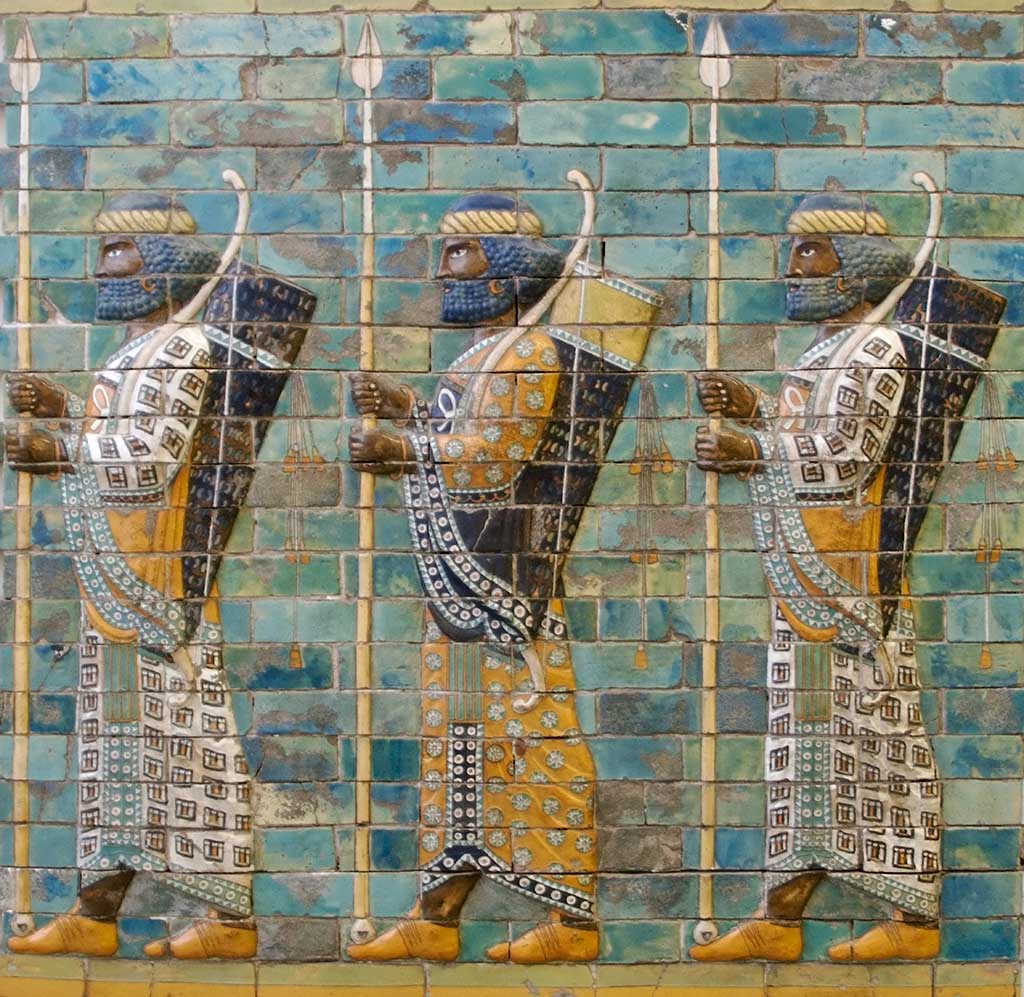Ever wonder what ancient civilizations called their warriors? While we use “warrior” today, the past offers a fascinating lexicon of terms reflecting diverse cultural values and martial practices. This exploration delves into the etymology and cultural context of ancient words for “warrior,” revealing how different societies viewed strength, courage, and the art of combat. From the heroic gibbor of ancient Hebrew to the honor-driven warriors of ancient Greece, we’ll uncover the rich tapestry of meanings behind these ancient designations.
Deciphering the Meaning of “Warrior”
What constitutes a warrior? Is it simply someone who fights, or does the term encompass a deeper meaning? Exploring ancient words for “warrior” reveals a spectrum of interpretations. Uncover the mysteries and magnificence of the ancient Egypt palace. These terms offer glimpses into the values and martial traditions of different societies, illuminating how they perceived the art of combat and the individuals who dedicated their lives to it.
Gibbor: Ancient Hebrew’s Heroic Ideal
In ancient Hebrew, gibbor stands as a prominent word for warrior. While often translated as “mighty” or “strong,” gibbor likely suggests a more profound meaning. It carries connotations of heroism and exceptional power, both physical and spiritual. Consider the biblical figure David, often described as a gibbor. He was not merely strong; he embodied courage, leadership, and unwavering faith. These qualities, combined with his fighting prowess, elevated him beyond a mere soldier to a champion of legendary status. This suggests that for the ancient Hebrews, a true warrior embodied a holistic ideal, encompassing strength in multiple facets of life.
Ancient Greece: Warriors Driven by Philotimia
Ancient Greece, a civilization renowned for its martial prowess, employed several words for warrior, each with unique nuances. Polemistí̱s and makhētḗs, for instance, translate to “fighter” or “combatant,” emphasizing participation in battle. However, the Greeks recognized that true warriorhood extended beyond mere fighting to excelling in combat. This pursuit of excellence is captured in the concept of aristeia, which emphasized not just victory but achieving glory through exceptional skill and bravery. This drive for glory stemmed from philotimia, a powerful cultural value often translated as “love of honor.” Ancient Greek warriors yearned for recognition, driven by the desire to etch their names into history. This suggests that they were not simply soldiers following orders but individuals motivated by personal ambition and the pursuit of greatness on the battlefield.
The Evolution of “Warrior” in English
Our modern word “warrior” has its roots in Old North French, evolving from the word werreier. Around 1300, werreier functioned as a verb meaning “to wage war.” Over time, it transformed into a noun, also spelled werreier, signifying “a warrior, soldier, or combatant.” This shift from the act of waging war to the person waging it is significant, highlighting a change in focus from the conflict itself to the individual engaged in combat.
A World of Warriors: Further Discoveries
The ancient Greeks and Hebrews are just two examples among countless cultures with unique terms for warrior. From the ancient Egyptians with their powerful armies to the disciplined Roman legionaries and the fierce Celtic fighters, each culture likely possessed specific words reflecting their understanding of warfare and the warrior’s role within their society. Exploring these diverse linguistic and cultural perspectives promises to enrich our understanding of ancient combat. Ongoing research continually adds to our knowledge, suggesting that our understanding of these concepts may continue to evolve.
| Language | Ancient Word for Warrior | Meaning/Interpretation |
|---|---|---|
| Ancient Greek | polemistí̱s | Fighter, combatant |
| Ancient Greek | makhētḗs | Fighter, combatant |
| Ancient Greek | aristeia | The pursuit of excellence in war |
| Ancient Hebrew | gibbor | Mighty, strong, hero; embodying more than just physical strength |
| Old North French | werreier | Originally a verb meaning “to wage war,” later a noun meaning “warrior” |
Unearthing the Old English Warrior: Beyond “Warrior”
Old English, spoken from roughly the 5th to the 12th centuries, lacked a single, direct equivalent to our modern word “warrior.” Instead, it employed a range of terms, each with distinct nuances, providing a more complex picture of martial roles and societal values within Anglo-Saxon culture.
Old English distinguished between different aspects of a warrior’s identity. Cempa, probably the closest general term, likely referred to the average fighting man or soldier. Cniht, originally meaning “boy” or “youth,” evolved to represent a young warrior, often in service to a lord—a kind of knight in training. This suggests that military service was a common path for young men, tied to feudal obligations. Garwiga, literally “spear-fighter,” indicates specialization with specific weapons, suggesting the spear’s prominence in Anglo-Saxon warfare. Geoguð, while meaning “youth,” also referred to young warriors collectively, highlighting the communal nature of warfare.
Warfare was deeply embedded in Anglo-Saxon culture, influencing social structures, values, and even poetic language, with multiple poetic synonyms for “war” like wig, guð, heaðo, and hild. This complex relationship with warfare is reflected in the varied terminology used to describe those who fought. Our modern “warrior,” derived from the Old French werreour, ultimately traces back to the Germanic root werra (“war”), marking a shift in emphasis from the act of war to the individual.
| Old English Term | Likely Meaning | Possible Nuances |
|---|---|---|
| cempa | Fighter, Soldier | A general term for fighters. |
| cniht | Boy, Youth, Young Warrior | Evolved to include a military role, often with feudal ties. |
| garwiga | Spear-fighter | A warrior specializing in the spear, possibly indicating higher status. |
| geoguð | Youth, Young Warriors | Emphasizes the communal aspect of warfare and youth in military service. |
Ongoing research may shed further light on these terms. Our understanding of Old English and Anglo-Saxon culture is constantly evolving.
Beyond “Bellator”: Exploring Latin Words for Warrior and Their Cultural Context
While bellator is often cited as the Latin word for “warrior,” derived from bellum (“war”), a deeper exploration reveals a richer vocabulary. Miles designates a Roman soldier within a formal military context, implying training and organization. Proeliator, from proelium (“battle”), emphasizes active combat, while debellator (“conqueror,” “subduer”) highlights victory. Praedatio (“plundering”) connects to acquiring spoils, a significant aspect of ancient warfare. Regional variations existed, as seen in Gaulish Latin’s homonus (“warrior”), exemplified in the proverb “Homonus audaces ignis semper vincit” (“A warrior always conquers bold fires”). Our modern “warrior” evolved from Middle English werreour through Anglo-Norman and Old French, with its ultimate origin likely in the Proto-Indo-European root “*wers-” (“to mix up, confuse, beat, or thresh”).
Beyond “Warrior”: Elegant & Evocative Synonyms for the Brave
“Warrior,” as defined by Oxford Languages as “(especially in former times) a brave or experienced soldier or fighter,” can be expressed through various synonyms, each adding a unique nuance.
Combat Prowess: Gladiator, champion, duelist, marksman, swashbuckler.
Military Role: Soldier, trooper, legionnaire, marine, ranger, veteran.
Courage & Strength: Valiant, intrepid, resolute, stalwart, audacious, gallant.
Ancient/Historical: Myrmidon, hoplite, samurai, knight, berserker.
Figurative/Metaphorical: Champion (of a cause), advocate, defender, crusader.
The etymology of “warrior” (Middle English, from Old North French werreior) reflects its connection to warfare. Different cultures have unique warrior terms, such as “samurai” in Japan, reflecting specific martial traditions. The perfect synonym depends on the context, whether describing a skilled fighter, a brave soldier, or a metaphorical warrior fighting for a cause.
- Sept 31 Myth: Unveiling Calendar Secrets - March 18, 2025
- How Long & Till December 18, 2025: Accurate Countdown Guide - March 18, 2025
- Discover Japanese Artists: A Complete History - March 18, 2025
















